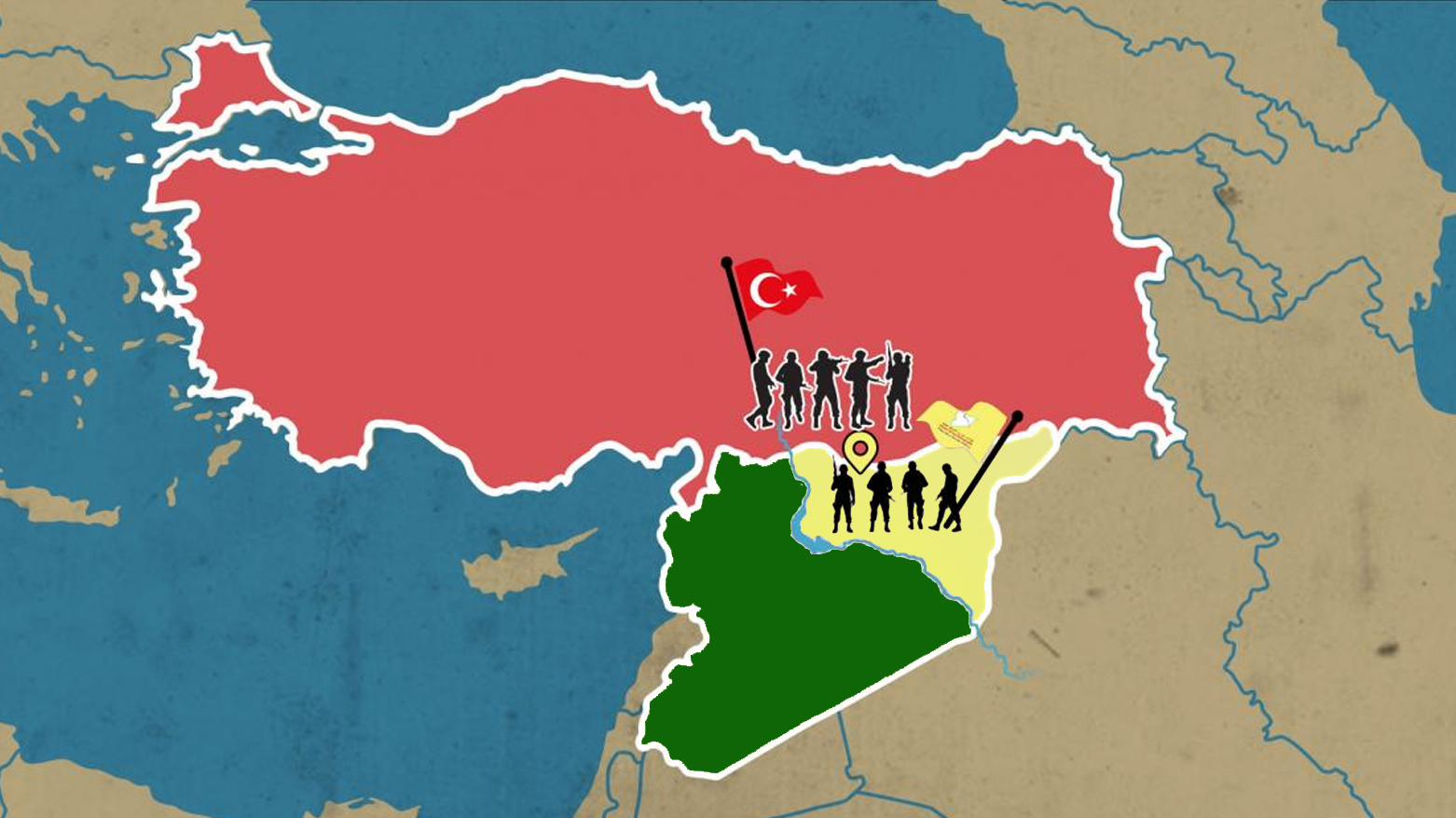Syrian President Warns Failure to Integrate SDF Could Trigger Turkish Military Action
Syrian President warns Turkey may act militarily if SDF integration fails by 2025-end. He affirmed Kurdish rights but criticized SDF/PKK divisions. US State Department continues talks on Syria-Israel security negotiations and March 10 deal implementation.

Erbil (Kurdistan24) – Syrian President Ahmed al-Sharaa cautioned on Wednesday that failure to integrate the Syrian Democratic Forces (SDF) into the national army by the end of this year could provoke Turkish military intervention, while affirming that internal divisions within the SDF and the Kurdistan Workers’ Party (PKK) are obstructing progress on agreements.
Speaking to the Turkish Milliyet newspaper, al-Sharaa underscored the significance of his forthcoming participation in the United Nations General Assembly, describing it as a “historic precedent,” since it marks the first time in six decades that a Syrian president has joined the annual meetings in New York.
He characterized the development as “a new turning point,” asserting that Syria has re-emerged as an active member of the international system rather than a state associated with narcotics, refugees, or terrorism. The president claimed that ninety percent of the drug trade has been halted and noted that one million Syrian refugees have returned despite the absence of large-scale reconstruction.
Al-Sharaa addressed the sensitive negotiations with Israel following the recent attack on Qatar. Asked whether he trusted Israel, he replied, “If the question is whether I trust Israel, the answer is no.” He described Israel’s targeting of the Syrian presidential compound and Ministry of Defense as tantamount to a declaration of war.
Nevertheless, he stressed that reaching a security agreement remains unavoidable, though he voiced skepticism over Israel’s willingness to honor its commitments. He added that Syria “knows how to wage war” but does not wish to continue down that path, highlighting that the recent unrest in Sweida was a “deliberate trap” set at a critical moment when negotiations with Israel were nearing conclusion.
The president confirmed that U.S.-brokered talks with Israel are close to yielding an agreement comparable to the 1974 disengagement accord. He emphasized, however, that such an arrangement would not amount to normalization or inclusion in the Abraham Accords.
Al-Sharaa firmly rejected the SDF’s demands for administrative decentralization, insisting that Syrian law 107 already grants up to ninety percent of local administrative autonomy. He described the demands as a “cover for separatist ambitions.”
Recounting his first meeting with SDF Commander Mazloum Abdi, al-Sharaa said he told him directly: “If you come to demand Kurdish rights, there is no need. My principle is that Kurds are equal Syrian citizens, and I am more concerned about their rights than you are.”
He underscored that the March 10 agreement created, for the first time, a U.S. and Turkish-backed framework for resolving disputes with the SDF. However, he accused certain factions within the SDF and the PKK of undermining its implementation. He noted that the SDF’s decision to ignore Abdullah Öcalan’s earlier call for dissolution has transformed it into a security threat not only for Türkiye but also for Iraq. While Ankara has previously refrained from launching military operations in deference to Syrian mediation efforts, al-Sharaa warned that Türkiye’s patience “may run out by year’s end” if the integration process fails.
In parallel with al-Sharaa’s remarks, the U.S. Department of State confirmed that Deputy Secretary of State Christopher Landau and Special Envoy for Syria Thomas Barrack met with Syrian Foreign Minister Asaad Hassan al-Shaibani in Washington. According to a statement by Principal Deputy Spokesperson Tommy Pigott, the talks focused on Syria’s future, the implementation of the March 10 agreement with the SDF, and the evolving trajectory of Israel-Syria relations.
Landau described the moment as a “historic opportunity for Syria to build a peaceful, prosperous, and sovereign nation” in the wake of President Trump’s announcement on sanctions relief. The discussions also covered counterterrorism cooperation and expanding economic opportunities.
Meanwhile, SDF Commander Mazloum Abdi used a military council meeting to reiterate his group’s commitment to the March 10 agreement, urging all sides to maintain the fragile ceasefire in northeast Syria. Abdi also announced his readiness to negotiate the integration of SDF units into the Syrian army and to work directly with relevant councils tasked with overseeing the process.
“The political solution is the best option to preserve Syria’s stability and the well-being of its citizens,” Abdi said, calling for guarantees that the rights of all Syrian communities will be respected in any final settlement.
The developments underscore the delicate balance confronting Syria at a critical juncture. Al-Sharaa’s warning of potential Turkish intervention highlights the urgency of reconciling the SDF issue, while his cautious engagement with Israel signals a willingness to explore pragmatic security arrangements without formal normalization.
At the same time, the U.S. has positioned itself as both mediator and guarantor, linking sanctions relief and broader economic opportunities to Syria’s ability to navigate these challenges. The coming months will test whether the fragile convergence of international diplomacy, regional security imperatives, and domestic reconciliation can produce a durable outcome.